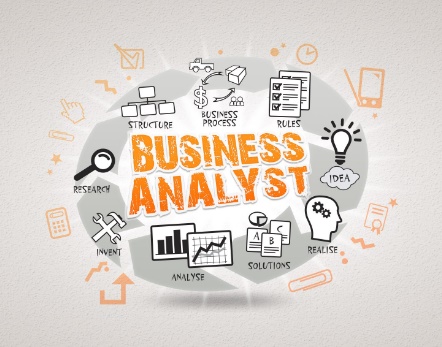
Business Development Skills | SkillsandTech
Business Development Skills
Business developers work to guide the development of a business by evaluating its current performance and looking for places where it can improve, by identifying opportunities, and by building and maintaining long-term relationships with business partners and allies.
While a degree is not always necessary to become a business developer, it does help, and some employers require it.
You will need strong skills in English, math, communication, and information technology, and you’ll need prior experience in business management, marketing, or sales.
How to Use Skills Lists
You can use skills lists several ways. First, look up the skills required for a given job to see whether you’ll be a good fit.
When you identify a type of job you want and find an opening, be sure to read the job description carefully. Job requirements vary, even among similar positions in the same field.
Then, once you decide what job to go for, see the names of the relevant skills you have as keywords in your resume, or other application materials.
Finally, when you write your cover letter, use it to highlight some of your relevant skills–but be prepared to give examples, as interviewers may ask.
You may also want to review our lists of skills listed by job and type of skill.
Top Business Development Skills
The following is a list of some of the most important skills in business development. But of course, you have to also be familiar with your particular industry and company.
And it really helps if you have an insatiable thirst for learning and knowledge.
Communication and Collaboration Skills
Business development is all about communication, from cold-calling prospects, to maintaining long-term relationships, to sharing information and ideas with colleagues and other stakeholders.
That means the business developer must be able to speak and write clearly and confidently, as well as listening with an empathic and open mind so as to be able to address others’ needs and concerns. Working well on a team is also critical.
Negotiation Skills
Part of business development is convincing other people to do certain things, such as offering assistance, lowering prices, or making investments.
There are negative ways to influence people, certainly, but more ethical and more effective (in the long term) is the subtle art of finding common cause and earning trust.
That requires prioritization, understanding, creative thinking, and, above all, a tactful and genuine demeanor.
Strategic Skills
A big part of business development is strategy. You have to be able to plan months, even years in advance, something not everyone can do.
Sound strategy depends on rational thought, a strong sense of priority, and the research skills necessary to understanding the situation in depth.
Computer Literacy
While a business developer need not be able to provide tech support, in this day and age, communication, research, and analysis all depend on using computers. Understand basic programs, such as Microsoft Word, and know how to take full advantage of all the program’s features.
Poor computer literacy will leave a person less efficient, less likely to reach their potential.
Project Management Skills
Of course, developing a business is a project. The business itself is the project, so it stands to reason that a good developer will have a lot of the same skills as a project manager.
These include the ability to set goals, establish timelines, manage risk, create and stick to budgets, delegate tasks, and manage teams.
Business Intelligence
Business development requires not only understanding one’s own business, but also that of competitors and of the market as a whole.
Part of gaining that understanding is simply research and listening with an open mind, but part of it, too, is collecting and analyzing data.
Knowing which market segments respond to what types of campaigns, how large the market is, and whether the market is currently changing will give you the leg up.
That means understanding and staying current with statistics and trends.
Business Development Skills
A – D
- Active Listening
- Analytical
- Adaptability
- Articulating Clearly
- Assertiveness Attention to Detail
- Business Intelligence
- Closing Deals with Prospects
- Client Engagement
- Client Relations
- Cold Calling
- Collaboration
- Communication
- Critical Thinking
- Customer Relationship Management (CRM) Software
- Customer Service
- Cultivating Personal Relationships with Customers
- Decision Making
- Delivering Sales Pitches
- Develop New Business
- Developing Proposals for Projects
- Developing Sales Pitches
- Devising Strategic Plans to Expand Sales
- Direct Sales
- Differentiating Products/Services from the Competition
- Documenting Business Development Activities
- Drafting Quotes for Projects
E – M
- Energetic
- Enhancing Relationships with Current Customers
- Entertaining Clients
- Estimating Costs for Jobs
- Facilitating Meetings with Staff and Clients
- Finance
- Following Up on Leads
- Identifying Benefits of Products and Services from the Customer Perspective
- Interviewing Current Customers to Assess Satisfaction
- Manage Leads
- Managing Competing Demands
- Mastering Product Knowledge
- Mathematical
- Microsoft Excel
- Microsoft Office Skills
N – R
- Negotiation
- Online Meeting Tools
- Organizational
- Partnerships
- Persistence
- Pleasant and Engaging Demeanor
- PowerPoint
- Presentation
- Prioritizing
- Problem Solving
- Proposals
- Project Management
- Promoting Additional Products or
- Providing Input to Product Developers
- Public Speaking
- Qualifying Leads
- Relationship Building
- Reaching Out to Cold Contacts to Cultivate Business
- Remaining Calm with Agitated Clients
- Resilience
S – Z
- Salesforce
- Sales Forecasts
- Strategic Planning
- Taking Initiative
- Teamwork
- Time Management
- Tracking Industry Trends
- Utilizing Social Media Tools
- Verbal Communication
- Working Independently
- Working the Room at Events
- Working Under Deadline Pressure
- Writing Sales Communications
Business Development Sk
ills





One Comment
Pingback: